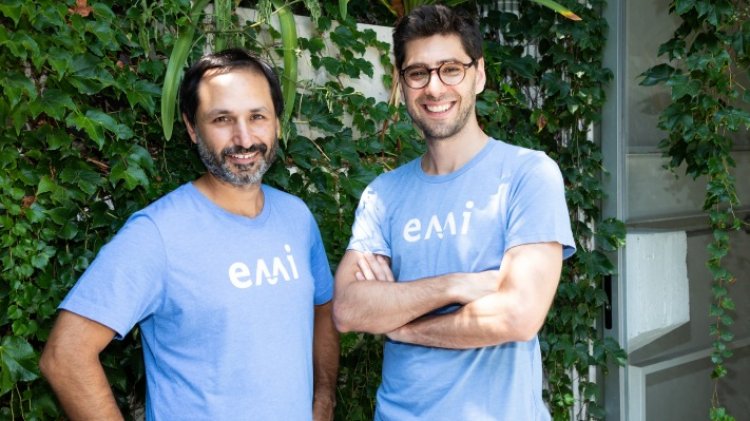Emi’s technology makes hiring frontline workers faster
The technology automates communication between global enterprises and candidates using a conversational interface.

Applying for a frontline job can be a game of hurry-up-and-wait, and communication is not always the best when a company is trying to fill dozens of positions at the same time.
Enter Emi, the latest company targeting technology to this portion of the workforce with a conversational artificial intelligence recruiting tool.
The technology automates communication between global enterprises and candidates using a conversational interface. CEO Mateo Cavasotto says this reduces the time it takes to hire people, while also increasing candidate satisfaction, thus improving recruitment productivity.
The idea for the company came a couple of years ago when Cavasotto and Andres Arslanian, CTO, worked as volunteers for a Microcredits NGO in Argentina. They were working to understand how problems among the poverty-stricken population could be solved with technology.
“We were obsessed with the challenge people encountered with trying to grow professionally, how to find jobs and grow their skills,” Cavasotto told TechCrunch. “We agreed that we needed to found a company that increased frontline workers’ access to skills and career advancement.”
The pair joined Y Combinator’s winter 2019 batch and got to work on their technology, developing tools so that companies could hire better frontline workers faster while also providing candidates with a better recruitment experience. The goal, Cavasotto said, was to meet candidates where they are, which is mainly text-based.
Emi focuses on large and enterprise customers, those needing to hire thousands of workers in retail, light industrial and distribution positions.
“We know their challenges are different from others,” Cavasotto added. “Companies implement and integrate the tool into their tech stack, and we act as the layer of communication between the workers and recruiters, automating that process.”
The company started in Mexico, but is also working with customers in the United States, having racked up a strong client list that includes Walmart, Danone, 7-Eleven, Starbucks, Burger King and Cemex.
Cavasotto sees the HR tech space is crowded, with many startups going after the frontline worker space. However, he believes Emi differentiates itself by focusing on the frontline worker — getting them access to a competitive advantage, whereas other peers in the space are focused on the enterprise.
Indeed, with 80% of the global working population considered frontline workers in industries like retail, food service and healthcare, this market is big and can accommodate many different approaches.
To continue growing fast, Emi secured $11 million in Series A funding, led by Merus Capital and Khosla Ventures. This gives the company a total of $13.3 million in funding, which includes a seed round received after YC.
The company is not alone in attracting venture capital for its approach. Just this year we saw companies like AskNicely take in $32 million and SnapShift raise $49 million, while Blink, Shiftsmart, When I Work, Fountain and Seasoned also grabbed funding in the last six months.
In the past year, Emi’s customers filled more than 20,000 jobs, which led to a 20% month-over-month growth in the number of enabled hires during 2021. Meanwhile, its annual recurring revenue grew three times during the year.
Cavasotto intends to deploy the new funding into product development, customer acquisition and to double its 45-person team over the next 12 months in the areas of sales, marketing, product and engineering.
As part of the investment, David Rangel, general partner at Merus Capital and former COO of Iterable, has joined Emi’s board of directors.
“We are very excited about Emi’s unique approach to bringing together frontline workers and enterprise employers,” Rangel said in a written statement. “Their experience with the very largest employers in Latin America gives them an edge over competitors, and their traction to date demonstrates a keen sense for what works for both candidates and enterprise recruiters and HR departments.”







